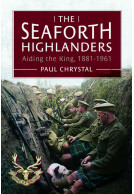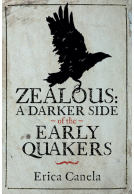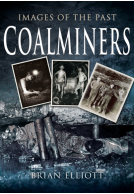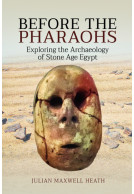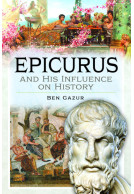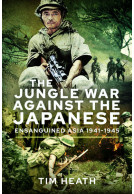Rome: Republic into Empire (Hardback)
The Civil Wars of the First Century BCE
Imprint: Pen & Sword History
Pages: 243
Illustrations: 20
ISBN: 9781526710093
Published: 20th February 2019
As featured in...
As featured in The Bookseller, October 2018
(click here for international delivery rates)
Order within the next 5 hours, 32 minutes to get your order processed the next working day!
Need a currency converter? Check XE.com for live rates
| Other formats available - Buy the Hardback and get the eBook for free! | Price |
|---|---|
| Rome: Republic into Empire ePub (6.7 MB) Add to Basket | £6.99 |
Rome: Republic into Empire looks at the political and social reasons why Rome repeatedly descended into civil war in the early 1st century BCE and why these conflicts continued for most of the century; it describes and examines the protagonists, their military skills, their political aims and the battles they fought and lost; it discusses the consequences of each battle and how the final conflict led to a seismic change in the Roman political system with the establishment of an autocratic empire.
This is not just another arid chronological list of battles, their winners and their losers. Using a wide range of literary and archaeological evidence, Paul Chrystal offers a rare insight into the wars, battles and politics of this most turbulent and consequential of ancient world centuries; in so doing, it gives us an eloquent and exciting political, military and social history of ancient Rome during one of its most cataclysmic and crucial periods, explaining why and how the civil wars led to the establishment of one of the greatest empires the world has known.
As Featured In
HiMA, Revue Internationale d'Histoire Militaire Ancienne, n°10-2021
The Roman Republic lasted from 510 BC until 49 BC when Caesar crossed the Rubicon into Italy in defiance of everybody and marched on Rome. Chrystal's book looks at social and political issues describes all of the protagonists, their military and political skills, the battles they fought and lost as well as the consequences of their actions. It is more than a chronology or a list of battles but is as complete a picture of Roman society as ever presented. there was no lack of leadership during this time - perhaps there were too many capable leaders. All were intelligent charismatic, courageous and ambitious and apt to fight and destroy one another. This includes women and the roles they played in society in a thorough discussion.
The Past In Review, David Lee Poremba
This is a very readable narrative complimented with extensive notes, a good index, great maps and an adequate bibliography. Recommended for those with an interest in this period.
Acknowledged in author article 'Rome's Civil War' as featured by
All About History, issue 82
Featured as competition prize
24seven Lifestyle Magazine, August 2019
A praise also to the choice of iconographic sources that I particularly appreciated. A book of great value.
Old Barbed Wire Blog
Read the full Italian review here
Rome: Republic into Empire offers readers a readable narrative, informative notes, a good index, maps and bibliography. The illustrations, chosen from the art of several centuries, are of absorbing interest. I liked a fifteenth century illustration of Julius Caesar's murder, showing Caesar as a medieval Holy Roman Emperor wearing a crown and purple robe, while Brutus and Cassius are stiletto-wielding fifteenth-century dandies in brightly-coloured jerkins and tights. I could go on praising this book, but I shall stop here: buy it and enjoy it for yourself.
Army Rumour Service (ARRSE)
Read the full review here
As featured 'ON THE BOOK SHELF'
Wargames Illustrated, January 2019
As featured by
The Bookseller 5/10/18
A good narrative account of the period that saw the transformation of Rome from democratic republic to Empire. It demonstrates how ‘democracy’ was a thin disguise for the greed and ambition of the few for which the many paid with lives and destitution and that the advent of ‘Empire’ was a formalisation of the same but with the winners clearly identified. It echoes with modern parallels; the redistribution of land to war veterans in Zimbabwe and other places in Africa; the consolidation of power amongst the few, the adjustment of political convention to gain advantage and perhaps most of all a need to revalue the ubiquitous use of the word ‘uncertainty’ in modern politics.
Michael McCarthy
These were truly uncertain times. Lives blighted by civil wars and the problems of those wars bringing destitution to the rural poor. The consequences of choosing the wrong/losing side and perhaps not having the benefit of a choice. The close web of political marriages that could in an instant see family members proscribed and even more ardent opponents created from the outcome.
The only criticism is that the narrative would have benefited from better maps, particularly as the reader often needs to look up the modern equivalent of the names of cities and regions.
Michael McCarthy. Battlefield Guide
About Paul Chrystal
Paul Chrystal has been history advisor to York visitor attractions, writing features for national newspapers, and broadcasting on BBC local radio, on Radio 4’s PM programme and on the BBC World Service.
He is contributor to a number of history and archaeology magazines and writes features for national newspapers. He is author of the best-selling A History of Britain in 100 Objects (2022). His books have been translated into Chinese and Japanese.
He is author of Factory Girls: The Working Lives of Women and Children published by Pen & Sword in 2022.









